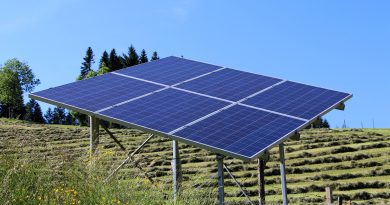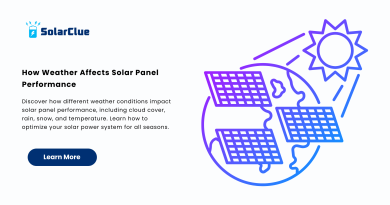On-Grid Solar System for DISCOMs – Empowering Utilities
The rise of solar power as a sustainable and efficient energy source has led to the widespread installation of solar rooftop plants. These photovoltaic systems are not only beneficial for individual consumers, but also for the local power distribution companies known as DISCOMs. This blog aims to explore the advantages of on-grid solar rooftop plants, On-Grid Solar System DISCOMs, highlighting the positive impact they can have on the energy landscape.
Table of Contents
The Need for Solar Rooftop Plants for On-Grid Solar System DISCOMs
On-Grid Solar System DISCOMs grab the opportunity as the demand for electricity continues to increase, traditional energy sources are becoming strained. Fossil fuels, such as coal and natural gas, are not only depleting but also contribute to environmental pollution. Therefore, there is a growing necessity to explore renewable energy options. Solar rooftop plants help address this need by utilizing sunlight, an abundant and clean source of energy.
Reduced Dependence on Conventional Power
One of the key benefits of on-grid solar rooftop plants for DISCOMs is the reduced dependence on conventional power sources. As the solar panels harness sunlight and generate electricity, this energy is fed into the electricity grid. DISCOMs can then distribute this power to consumers, reducing the burden on traditional power generation facilities. This not only helps meet the increasing demand for electricity but also ensures a reliable and uninterrupted supply.
Reduced Transmission and Distribution Losses
On-Grid Solar System DISCOMs acquires traditional electricity generation requires power to be transmitted over long distances from power plants to consumers. This transmission process incurs losses due to resistance in power lines as well as transformer inefficiencies. On-grid solar rooftop plants, on the other hand, generate electricity close to where it is consumed. As a result, there are significantly lower transmission and distribution losses, making the overall system more efficient. This reduction in losses benefits both the DISCOM and the consumers, as it minimizes energy wastage and enhances the financial viability of the electricity grid.
Diversification of Energy Sources
Investing in on-grid solar rooftop plants allows DISCOMs to diversify their energy sources. Relying solely on conventional power generation can pose risks, as it is subject to market fluctuations and geopolitical factors. By incorporating solar power into their energy mix, DISCOMs can reduce their vulnerability to such risks. Solar energy is a renewable and abundant source, ensuring a stable and secure energy supply for the DISCOMs and their customers.
Environmental Advantages
On-grid solar rooftop plants offer environmental benefits that resonate with the larger global sustainability goals. By harnessing the power of the sun, these plants generate clean energy that does not release harmful emissions or contribute to global warming. Traditional power generation, on the other hand, relies heavily on fossil fuels, which release greenhouse gases and pollutants into the atmosphere. By promoting solar power, DISCOMs can contribute to combating climate change, reducing air pollution, and protecting the environment for future generations.
Incentives and Policies
Governments and regulatory agencies often encourage the adoption of renewable energy by offering incentives and implementing supportive policies. DISCOMs can benefit from such incentives in the form of tax credits, subsidies, and feed-in tariffs. These financial incentives help offset the initial installation costs and make solar rooftop plants more financially viable for both DISCOMs and consumers. Additionally, various policies and regulations promote the integration of renewable energy sources into the electricity grid, further facilitating the adoption of on-grid solar rooftop plants.
Conclusion
Unlock the full potential of sustainable energy with SolarClue® and empower DISCOMs to lead the charge towards a greener future. On-grid solar rooftop plants, fortified by the cutting-edge technology of SolarClue®, present an array of advantages for DISCOMs. These plants not only diminish reliance on traditional power sources but also curtail transmission and distribution losses, offering a resilient and efficient energy solution.
Dive into the myriad benefits, including the diversification of energy sources, environmental advantages, and the availability of incentives and supportive policies. Solar power emerges not just as an option but a strategic imperative for DISCOMs in aligning with the global shift towards sustainability. By investing in SolarClue®-enhanced on-grid solar rooftop plants, DISCOMs actively contribute to a planet-friendly paradigm while ensuring a steadfast and eco-conscious energy supply for their customers.
As the world propels towards a sustainable future, SolarClue® invites DISCOMs to seize the opportunity and champion the adoption of on-grid solar solutions. Make the pivotal choice for a greener planet and a robust energy landscape—partner with SolarClue® and illuminate the path to a sustainable and efficient energy future.
Frequently Asked Questions
On-grid solar enhances energy distribution efficiency, providing a reliable and sustainable power source for utilities.
On-grid solar ensures a continuous power supply, contributing to grid stability and supporting the energy demands of utilities.
It provides DISCOMs with a cost-effective, scalable, and environmentally friendly solution for meeting the increasing energy needs of communities.
Smart grid technologies play a crucial role, enabling efficient energy monitoring, management, and distribution within the grid.
On-grid solar reduces dependence on non-renewable energy sources, aligning with sustainability goals and minimizing environmental impact.
Challenges may include initial setup costs and integrating new technologies, but long-term benefits outweigh these concerns.
Yes, on-grid solar solutions are adaptable, allowing customization based on the unique requirements and scale of different DISCOMs.
It contributes to a more resilient and modernized energy infrastructure, fostering a sustainable and reliable power distribution network.
Many governments provide incentives and policies to encourage the adoption of on-grid solar, promoting a transition to cleaner energy sources.
On-grid solar offers a scalable solution, supporting the energy requirements of urban areas while minimizing the strain on conventional power sources.



